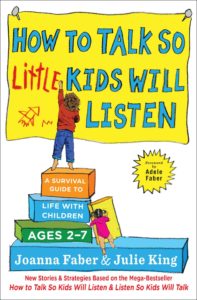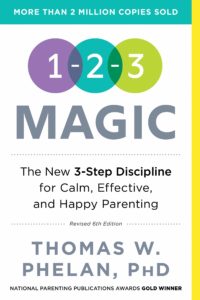Parenting toddlers is hard AF. Remembering that these little people don’t know what to do with their big emotions takes a lot of patience, selflessness, and maturity. Three things that are not front of mind when my kid decides he doesn’t want to do something I’ve asked him… for the 5th time.
There was a certain period when I was at my wit’s end with how to handle his intense outbursts. He is high-energy and incredibly smart, but also defiant and dramatic (I mean… full of emotions). I felt like I was going crazy and threatening a tap (spanking) or a time-out every other hour. I was like something’s gotta give. I’m tired – physically and emotionally.
Parents don’t always know best.
Of course my mom is like, “all you gotta do is pop him one good time.” Well, I did. Multiple times. But all that teaches is that when something doesn’t go your way, to hit. And that’s exactly what happened. Your kids are gonna do what they see. At 2 years old, he doesn’t understand the difference between me popping him when he does something “wrong,” then not being able to hit me when he’s upset about something. I don’t want to teach him that it’s ok to get physical when something doesn’t go your way. I also felt like there were times that I *know* I could have handled the situation better by giving warnings or recognizing that he was acting out because of a particular need that wasn’t being met. So I wanted to do everything in my power to address those needs and do what I could before resorting to taps, spankings, or whatever. Now, don’t get me wrong, I will still threaten a tap every now and then, but fortunately, with the strategies and tips found in these two books, I find it’s pretty unnecessary.
Drumroll please…
So without further ado, these are the two books that completely changed the way I parented my toddler and has made it a much more enjoyable experience with fewer tantrums, more laughs, and more consistency.
How to Talk So Little Kids Will Listen: A Survival Guide to Life with Children Ages 2-7 by Joanna Faber and Julie King
1-2-3 Magic: Effective Discipline for Children 2-12 by Thomas W. Phelan, PhD. (I think I read an earlier edition of this one and not the one linked but I imagine the content is mostly the same.)
These books are like two sides of the same coin. How to Talk helps prevent misbehavior and tantrums in the first place, while 1-2-3 Magic gives you guidelines for how to deal with misbehavior after it’s happened (basically counting to three and then doing timeout). Using them together is like a 1-2 combo for the toddler years and beyond. These are definitely books that I plan to refer to every so often since the strategies work well into the teen years.
I read these books almost two years ago, so I don’t remember everything exactly, but here are the things that have stuck with me throughout.
Lessons from How to Talk:
I loved that this book gave examples of things that real parents have tried and gave phrasing for exactly what to say.
1. Kids need to feel a sense of connection and a sense of control every day. To feed the sense of control, I give Donovan “choices” when it comes to getting him to do whatever I want him to do at the moment. For example, after breakfast I would always struggle with getting Donovan to willingly go upstairs to brush his teeth and wash his face instead of going into the living area to play. I would find myself repeating, “NOW Donovan, it’s time to go upstairs. Donovan, it’s not playtime. Put that down. Donovan, this is my last time telling you.” And on and on and on. One day after reading this book, I asked him “Do you want to go upstairs like an elephant or a lion?” He said “I want to walk upstairs like a kangaroo!” In my mind I’m like “Ok, whatever just go upstairs.” But at that moment it was like, the heavens parted and the angels sang and he hopped his little self right on up those stairs into the bathroom and didn’t even ask about playing with toys. Who knew it could be that easy. Every day after that he looked forward to hearing the options for going upstairs. Weirdo. Which leads me to #2.
2. Be silly. A lot of times I tried to be stern, which made us adversaries. But when I act silly with him, it’s a point of connection (see #1). So instead of just watching him go up the stairs like an elephant, I stomped up there, too.
3. Sometimes natural consequences are better teachers than we are. There are some things that are just not worth discipline or punishment. For example, I’m not fighting with you to put your coat on so we can get out the door. (Why do kids resist everything? Or is it just mine?) So, I’m going to give you a minute, but after that, we’re leaving whether you have the coat on or not. Of course, I keep the coat with me, but I just save myself from the struggle. When we get outside and he realizes how cold it is, he usually hurries to put the coat on. And sometimes he doesn’t! Either way, I don’t care and I have avoided stress and we’re on our way. Win win.
4. As the parent, I have to be mindful and anticipate my kids’ needs. My kid hates to take naps. But he still needs them. On the rare occasion that we miss a nap, I know that by 7pm he is going to be a whiny, defiant mess. Just acknowledging that he is tired allows me to pause and respond to him with empathy or give him more space. It also means that sometimes, instead of sending him to timeout, I allow him to sit on my lap and just relax for a bit. The same goes for if he’s hungry, or off of his routine (hello quarantine), or is in a heightened emotional state. I try to be aware of how his day has gone and adjust how I respond accordingly. I know when I’m hungry, I can be incredibly short (read: an asshole). So I can imagine how that is for kids. And if he’s hungry, that’s kinda my fault, right? Parenting is humbling AF.
5. Adjust my expectations of my kids. Kids are not just little versions of us. They are literally not developed yet. They have only existed for months. As a matter of facts, I know adults who aren’t emotionally developed yet. So yes, kids get mad and they’re going to scream and throw stuff, because they don’t know what to do with their big emotions. So have a little empathy. And remember that when we’re upset, how we deal with that is what our kids will emulate. Also, don’t take it personal when kids test your gangsta. They will. It’s their job. To figure out where the boundaries are. It’s how they know they are safe with you. Just make sure you’ve made the boundary known and hold to it.
This leads right into what I learned from the second book.
Lessons from 1-2-3 Magic:
1. Be consistent. This one is the most important points of all. If you start counting, you better carry out whatever consequence it is that you have established. Otherwise, your kid is going to try you every single time to see if this is a time they can get away with it. If the consequence is timeout, and you’re watching your favorite show, or you’re painting your nails, or even cooking- whatever it is, stop what you’re doing and carry out the consequence. Being consistent lets your kid know what to expect. I have gotten to the point where now, all I have to do is say “that’s 1” and Donovan corrects himself. I very rarely have to get all the way to three. Consistency is so key.
2. He doesn’t have to sit still in a chair or in a corner for timeout. When I do timeout, it’s to redirect from the unwanted behavior and really give him time away to sort of reset the situation. So, we do timeouts in his room, where he has free access to his toys and can play if he wants to. The only requirement is that he has to stay in his room for the stated time (he’s 3 years old now so his timeout is 3 minutes). Now, if it were me I would just go in my room and play. But, toddlers gonna toddle – he hates being put in there by himself and whines or throws stuff the whole time he’s in there. Sigh.
3. Sometimes parents need a timeout, too. I am not perfect, and sometimes I know my patience isn’t where it needs to be to deal with toddler antics. On those days when even the word “mommy” stresses me out, I know I don’t have it in me to finesse through the tantrums when they inevitably come. So I give myself some space and do a mommy timeout in my room. May or may not involve wine. Or whiskey.
I was pretty surprised at how long 1-2-3 Magic is considering the basic premise is count down and put in timeout. But there’s so much more there. Like, when to count, how to count, why you don’t explain while you’re counting, how to do timeout, how to do timeout when you’re not home in your regular environment, how to deal with rebuttals – so so much. So even though it seems like a super easy premise, still get the book because there are some minor details that may help things go smoother for you.
I definitely plan to read both of these books again since I now have a second toddler. These are books that I’ll probably read or thumb through several times as they get older and discipline strategies change.
Don’t get it twisted…
As I close, let me just say that while these books have improved my parenting experience tremendously, my kid is still 3. So, there are still challenging days. There are times when I put him in timeout in his room and it sounds like there are sumo wrestlers in there tearing shit up! But overall there are fewer behavior problems, I’m using timeout less, I’m frustrated less, and I’m enjoying my kid more. Do I repeat myself more than I want to? Yes. But we’re lightyears beyond where we were before I read these two books. So 10/10 highly recommend if the toddler years are kicking your butt!
Also, honorable mention for a third book: Whole Brain Child: 12 Revolutionary Strategies for Nurturing Your Child’s Developing Mind. I remember really enjoying this book and learning a lot about why my kid reacts the way that he does. There is even a workbook that helps walk you through the strategies provided. The takeaways didn’t stick with me the way they did for the other two (maybe because I didn’t get the workbook??), so that’s why it gets an honorable mention, but I do plan to keep the hard copy around.
In the comments, let me know if you’ve read or plan to read these or any other parenting books!





Leave a Reply